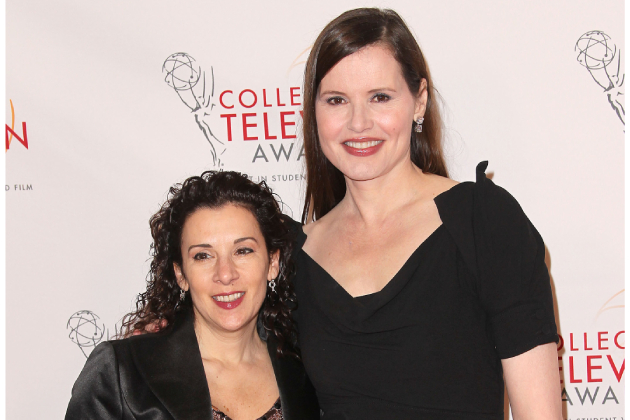NEW ORLEANS — Matt Sharp, CEO and founder of New York-based Sharp Entertainment, TLC president and general manager Howard Lee and Shaun Robinson, host of 90 Day Fiancé Tell All, took a deep dive into the 90 Day Fiancé franchise during a panel at the 2020 Realscreen Summit on Wednesday (Jan. 29) in New Orleans.
The series, which comprises seven seasons and six spin-off series, got its start at the 2013 Realscreen Summit in Washington, D.C., after Sharp presented his sizzle reel to Howard.
“Howard said, ‘What are you really passionate about?'” Sharp said. “I took out this reel and said, ‘Look. I’ve been rejected a thousand times but check this out. He immediately said, ‘I want to buy that.'”
Now, seven years later, Howard said it was “surreal” to be on a panel, discussing the series success.
“At that time, TLC was not doing this category. We were not in the love and relationship space at all. That was the heyday of Jon and Kate Plus 8… We saw some other brands doing it, we didn’t know how to get into it,” Howard recalled. “I had this vision about what a Sharp Entertainment show would look like… At that moment, it was pivotal for both of us to take a risk on each other.”
The panel’s moderator, Michael Schneider, senior editor of TV awards at Variety, shifted the conversation to the challenges of making 90 Day Fiancé.
“We were never pitching a mail-order bride show, ever… At the beginning, it was getting over the hurdle for the audience,” Sharp said. “I do believe that sticky television, a lot of times, kind of drafts off something where there’s an expectation. A great example of that is Pawn Stars.”
For 90 Day Fiancé‘s first season, Schneider noted the casting was “unexpected.” Sharp and Howard added it was important to get the casting right in order to avoid the “mail-order bride” stereotype.
“When it comes to casting, Howard is the biggest pain in the ass. He’s a hard ass,” Sharp said. “That first season was, ‘How are we going to find authentic couples?'”
The solution was to work with immigration lawyers, he said, adding that there was a lot of rejection in order to push the show into the right direction. For Howard, it was important to make a show that resonated with viewers in an intense way. “The casting was the biggest step,” he said. “It’s hell to cast the right people.”
That first season set the tone for the series, which quickly became a cultural “phenomenon.”
“We’re not Disney+ here, we’re not Netflix, we’re not Hulu… I have a report card. Our entire team does. It’s called ratings,” Howard said. “Ratings, in my world, still matter. It’s a judgement about the product and the shows. We live and die by the numbers, and I can’t hide them either… When we saw that first season register, it had a pulse.”
For Howard, one reason the series resonated with viewers is that producers approached 90 Day Fiancé like a “pure documentary.
“You can see it in the scene work you do, how you approach it. It’s just amazing how real it is,” Howard said.
Sharp added: “The people in 90 Day Fiancé are taking an incredible risk. People love watching people take an incredible risk… At the end of the day, there’s a thread of hope… What’s more primal, more important than finding the one?”
The response from viewers on social media, who religiously tune in with each episode on social media, confirmed to Howard and Sharp that the show was a success — and ripe for spin-offs that now include 90 Day Fiancé: Happily Ever After? and 90 Day Fiance: Before the 90 Days. Now, Schneider calls the series TLC’s “Marvel Universe.”
“It was insatiable. The audience was clamoring for more. Myself, running the network and our entire team were all talking about how many more we can spin-off,” Howard said. “For me, we are gatekeepers of the brand, and we have to make sure that we don’t become clobbered by only one thing. But the research showed it wasn’t enough, they still wanted more.”
When it comes to the series’ reputation as a “guilty pleasure” reality show, Sharp said it’s much more.
“We watch scenes all the time where we feel like, ‘This is award worthy,'” he said. “Something’s happening in this show that I’ve never seen before on television… When I hear the word ‘guilty pleasure,’ that’s great. That means people are hooked in and riveted and pulled in. I also feel like I’m super proud of this show.”































